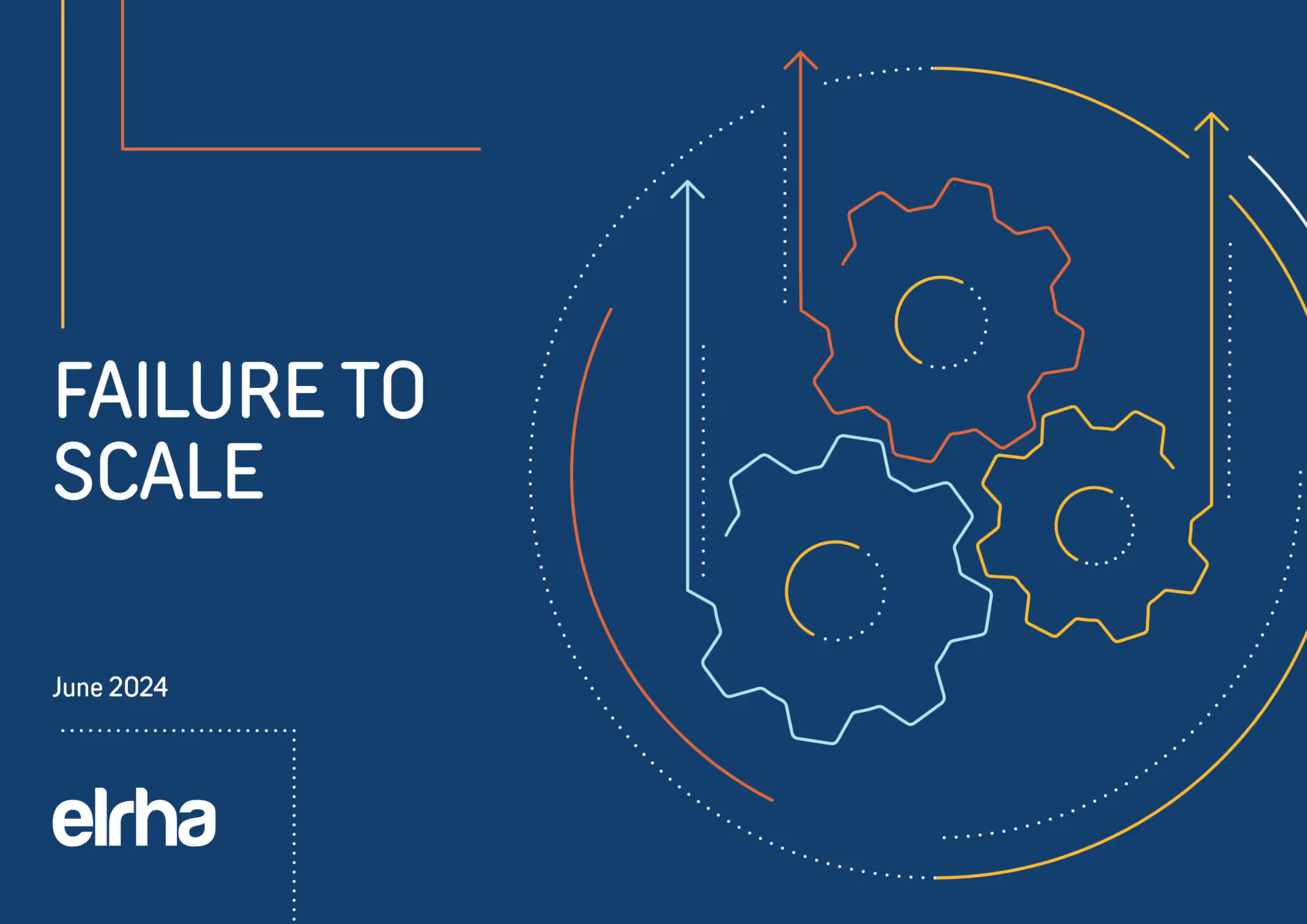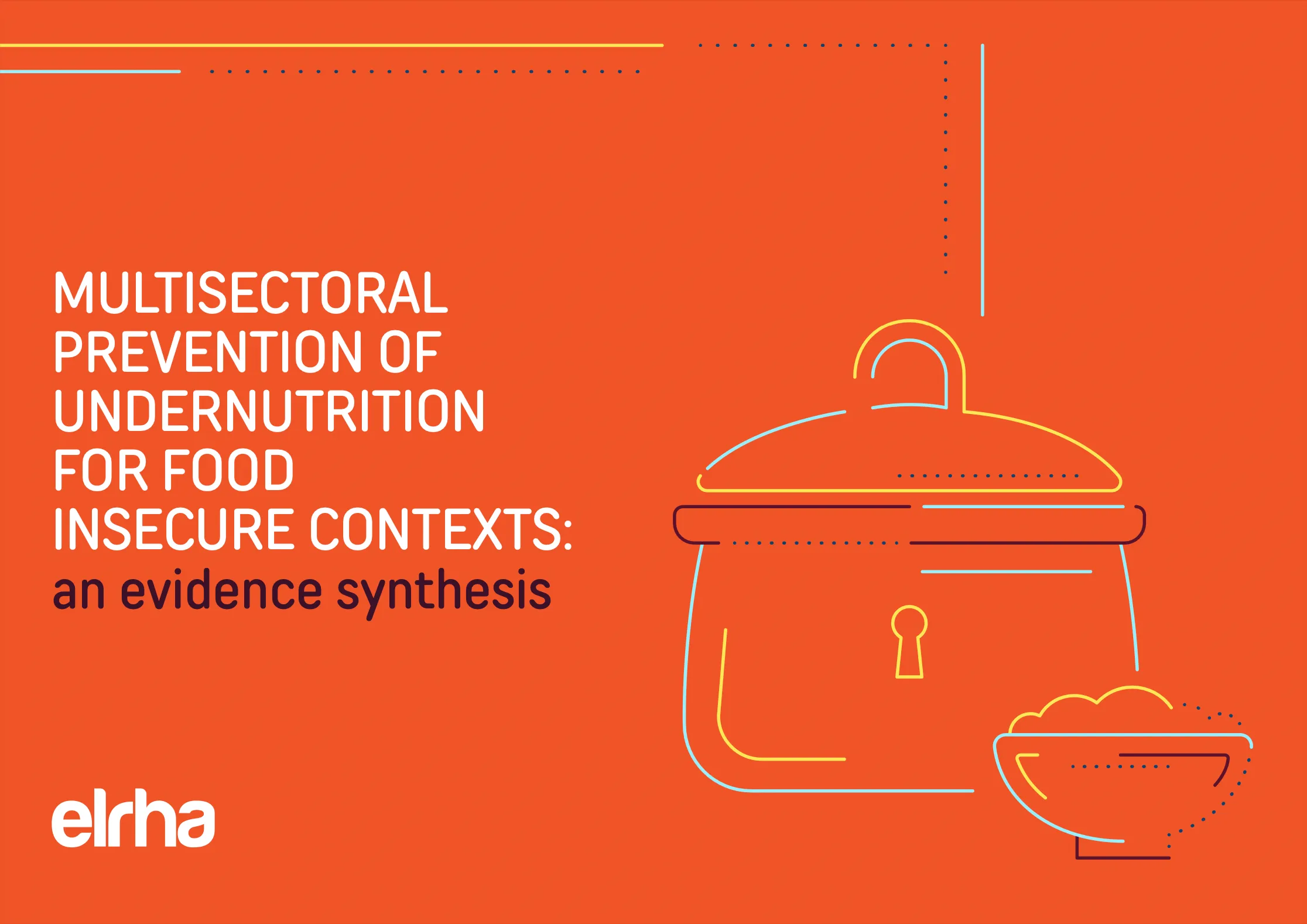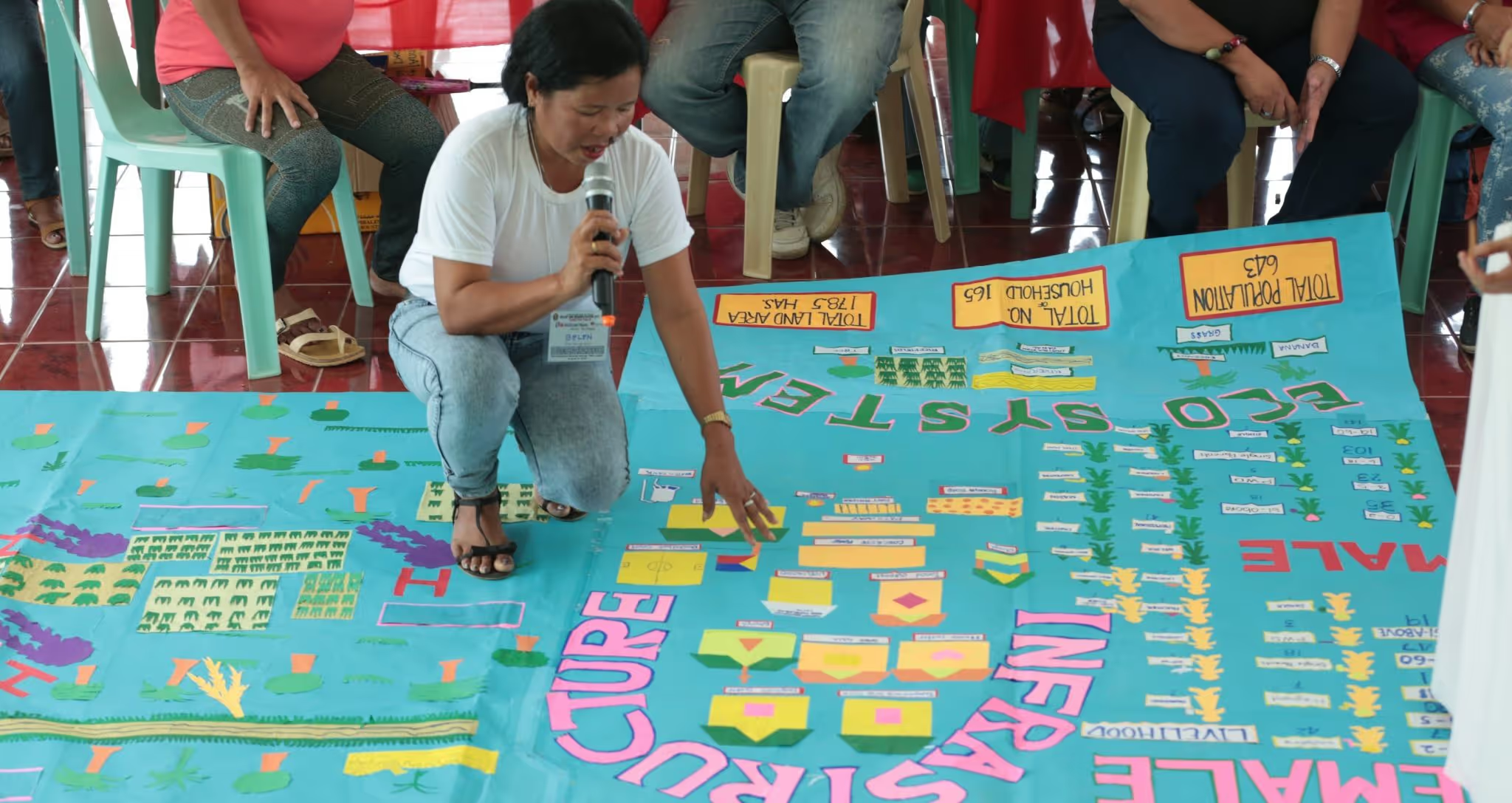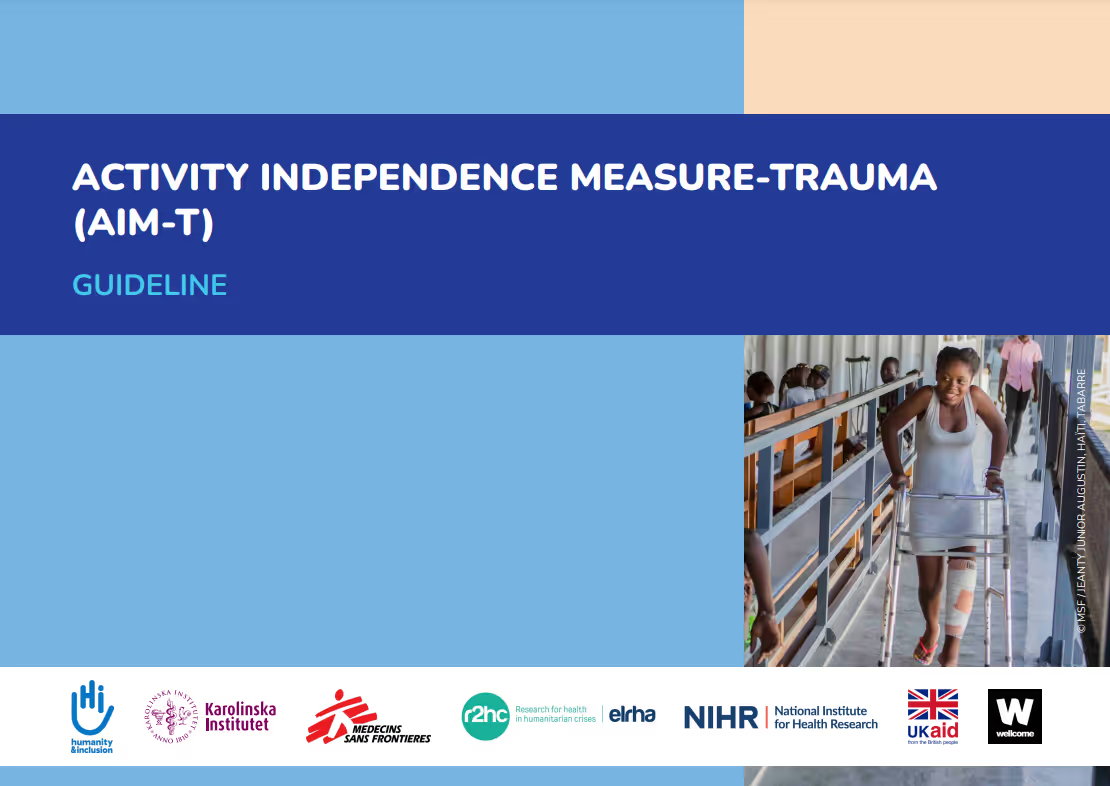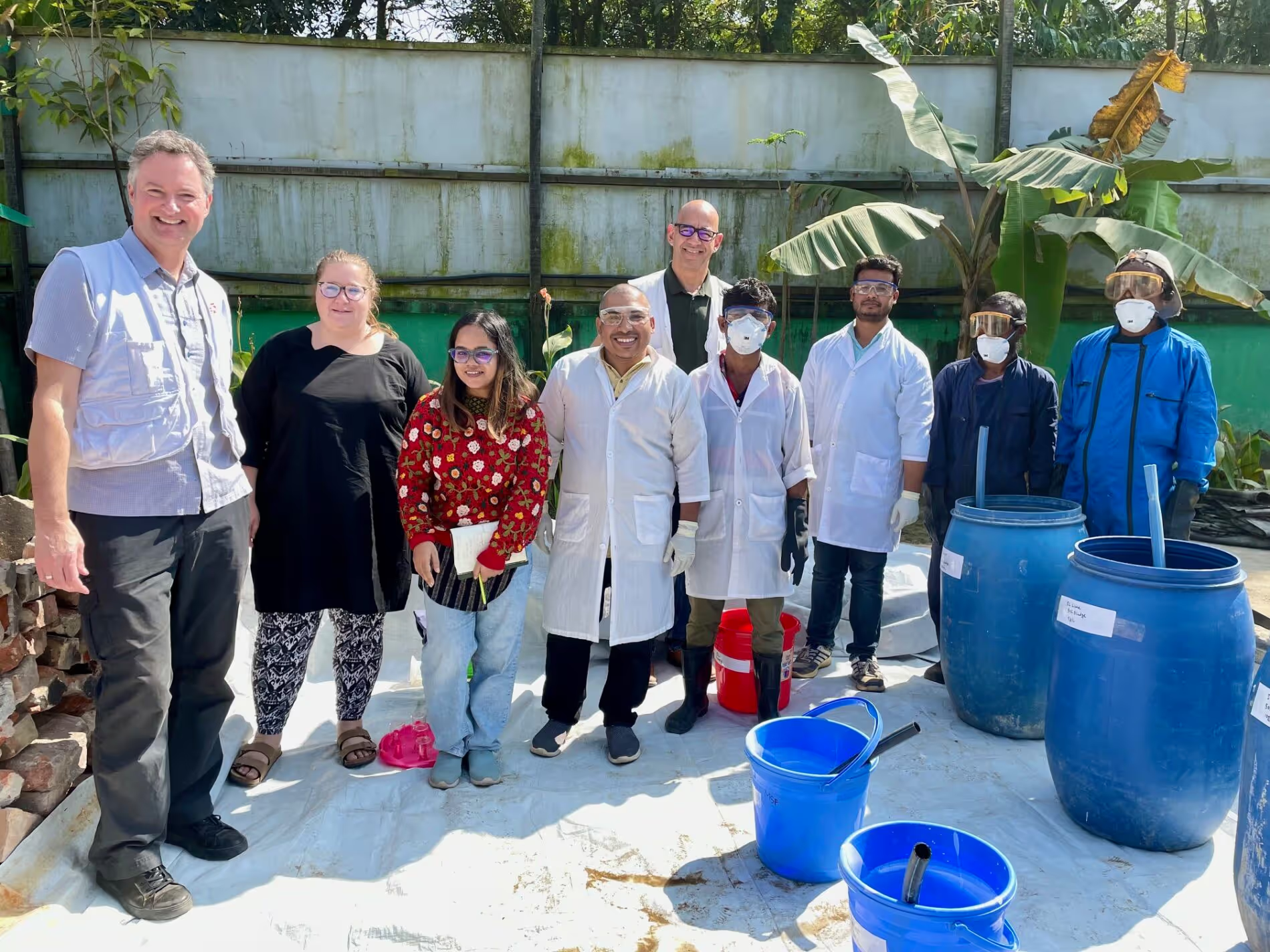Resources
For our work to have an impact, we can’t keep it to ourselves. Sharing insights from our funded grants and our own research and insight is a big part of what we do. From flagship reports aiming to strengthen the humanitarian system, to practical toolkits and frameworks, to the valuable evidence produced by our grantees, and beyond. Discover our collections below.
Explore our library of evidence, catalogues, toolkits, and case studies, providing insight and analysis on global humanitarian research and innovation.
Our library of grantee publications brings together updates and insights from our grantees’ work.
We have created curated collections in our key Focus Areas to support your work. Explore evidence, updates and insights from our work in research and innovation.
All resources
Get the latest resources direct to your inbox
Sign up for our newsletters to be the first to hear about our published work.
1. Women carrying wood pieces in Maharashtra, India - Photo by Gyan Shahane on Unsplash.

